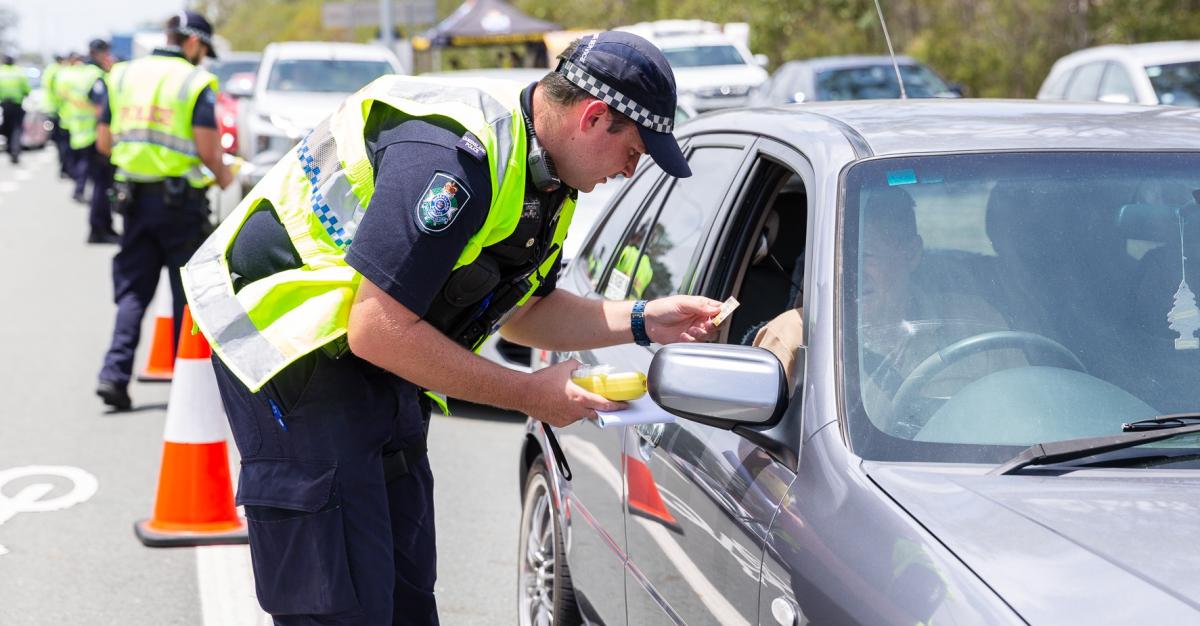Page Contents
Main Content
If a driver is affected by alcohol it affects their driving ability and increases the risk of having a crash. Alcohol can cause:
- reduced ability to judge distance and speed
- distorted perception of time, place and space
- reduced co-ordination and concentration
- blurred vision
- dizziness and fainting
- fatigue
- memory loss
- nausea
- unpredictable moods/behaviours
- unconsciousness
- muscle weakness.
Roadside breath testing
You can be stopped when driving a motor vehicle and tested by a police officer at any time of the day and night for a random/roadside breath test to see if you have alcohol in your system.
How breath testing works
You will be intercepted by police and asked to provide a roadside breath test that will produce an immediate result. If you cannot provide a breath test for medical reasons, your driver's licence must be previously suitably endorsed and you will be required to provide a blood specimen for testing.
Your breath test will produce either a:
- negative result — this means no alcohol was detected and you can continue on your way
- positive result — this means alcohol has been detected.
If your breath test is positive, you will need to provide another breath specimen for a breathalyser either at the roadside, if available, or back at a police station.
Driving with an alcohol concentration level
There is zero tolerance for driving with alcohol in your system if you are the holder of a learner permit or provisional driver's licence or a restricted licence, or if you drive a particular motor vehicle (see Section 79(2C) of the Transport Operations (Road Use Management) Act 1995 to see if a particular type of motor vehicle applies to you). Any detection of alcohol in your system and you can be penalised.
Driving with alcohol present is identified by a breath analysis.
If you test positive for alcohol, your driver's licence will be suspended for 24 hours and if that reading is over 0.10% your licence will be suspended immediately until your court date.
When dealing with your charge of driving with alcohol present, upon conviction a magistrate will:
- disqualify you from driving, and may
- fine you, or
- impose a maximum term of imprisonment.
Driving under the influence of liquor or a drug
If a police officer reasonably suspects that your driving ability has been impaired by alcohol you may be required to provide a specimen of breath or a specimen of blood for analysis.
If you are charged with driving under the influence of liquor or a drug or charged with failing to provide a specimen of breath or blood, your driver's licence will be immediately suspended until the charge is dealt with by a court.
When dealing with your charge of driving under the influence of liquor or a drug, upon conviction a magistrate will:
- disqualify you from a minimum of 6 months, and may
- fine you
- impose a maximum term of imprisonment.
If you are charged with a repeat drink driving offence (i.e. you have been previously convicted of a drink driving charge in the last 5 years) a court may:
- disqualify you from driving absolutely
- fine you
- impose a term of imprisonment, that will be determined by the court.
If you are unsure how alcohol may affect your driving, think about alternatives. Ask someone who hasn't been drinking for a lift, catch public transport or book alternative transport. Remember that alcohol can stay in your body for a significant period of time. If you have had a large quantity of alcohol you may be still well over the legal limit the next day.
